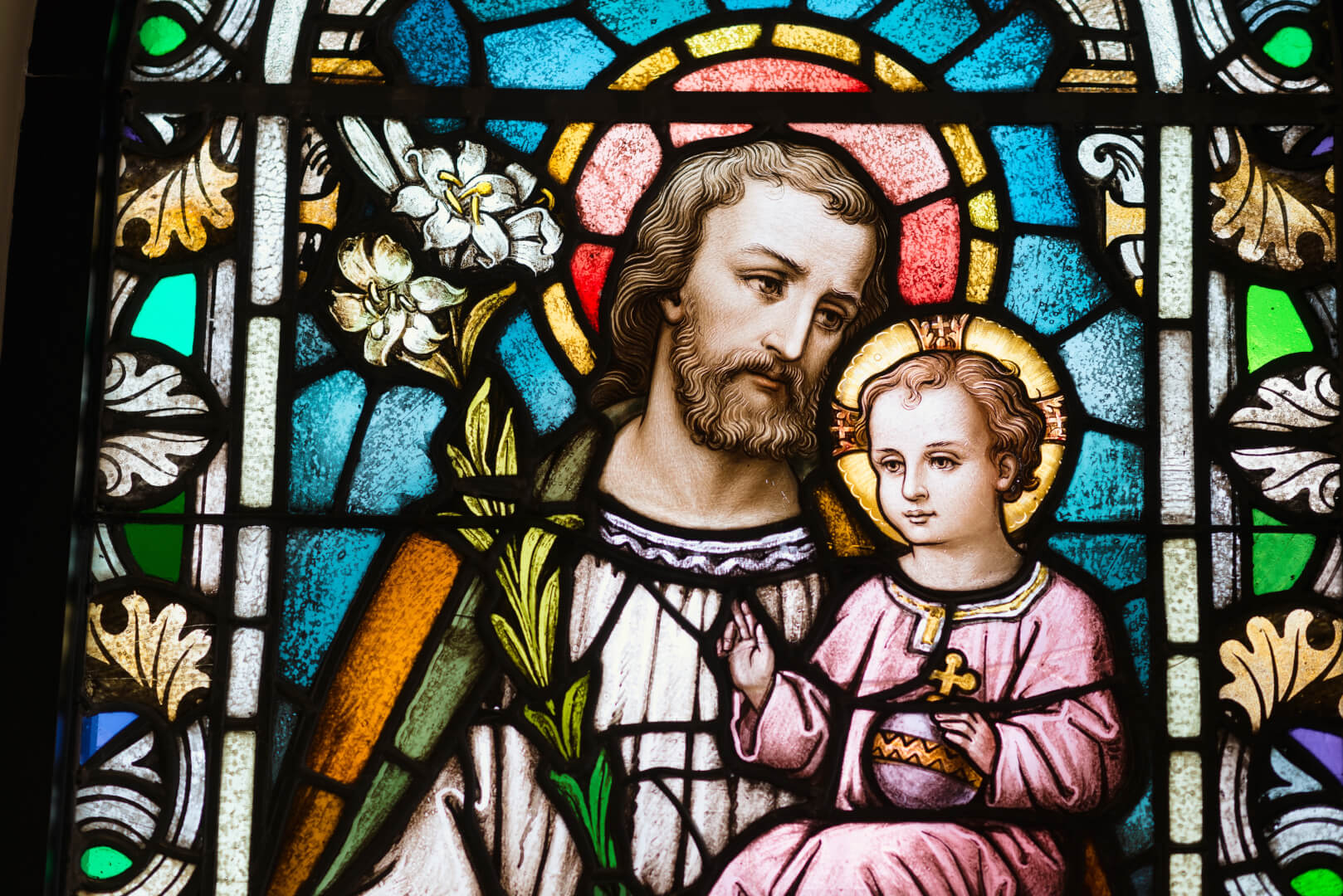There are more than 100 verses in Scripture that tell us not to be afraid. But does that mean that when we’re fearful, worried, or anxious that we’re not following God’s will?
Last week on St. Joseph’s Workshop, Fr. Matthew Spencer, OSJ referenced a homily from Fr. Hugh Barbour, O.Praem that offered some insights on fear and trust in the Lord. The homily focused on St. Joseph, and Fr. Barbour pointed out that when the angel Gabriel appeared to Joseph in a dream he told Joseph not to be afraid to take Mary into his home. And yet, just a few verses later Joseph is once again afraid.
“Why is it that St. Joseph feared in the first chapter, and then was told to not fear, and then later would experience fear again?” Fr. Matthew asked. “And what does that mean for us? Was St. Joseph somehow imperfect in following the angel who said to him to not fear? Was he somehow a poor example of trust and having confidence in the Lord’s plan?”
“Well, I think we can answer that last question with a with a resounding no,” Fr. Matthew acknowledged. “St. Joseph is, after our Blessed Mother, the the best example of what it means to trust in God’s providence. So the fact that he experienced fear does not undermine his holiness.”
Fr. Matthew pointed out that emotions are a part of our life that we often have little control over. While we need to work to govern our passions, that does not mean that we need to stifle our emotions or see them as bad.
“The point of being Christian, Father Barbour would say, is not to eradicate our emotions,” affirmed Fr. Matthew. “It’s not to eliminate the passions that we have in our life, to become passionless robots, going through the world without any humanity in us. No, that’s not what it means to be Christian. In fact, to be human means we will have these emotions that will make us struggle and suffer a little bit.”
Joseph experienced fear, not because of his lack of trust in the Lord, but as a response to being in situations he had no control over.
“He’s not going to be able to control what happens with Herod’s son, and whether Herod’s son is going to be as murderous as his father was,” Fr. Matthew explained. “He’s not going to be able to control the political situations and the sufferings that are around him and his beloved family, in a human sense. And so his fear is rather justified, not as a lack of faith, or trust in God’s plan for him. But as a realization as a human being, of what it means to experience an emotional reaction to difficult circumstances.”
When Scripture says to not be afraid, it is not telling us to suppress our emotional response. In fact, there are times when fear can motivate us to protect others, can motivate us to move out of danger, to move out of difficult circumstances. Fear itself can be utilized by the Lord to bring us to action.
“Now, if we’re fearing because we were not trusting God, that’s a different matter, right?” said Fr. Matthew. “If we’re afraid, because somehow we have a lack of trust in God’s plan for us, we certainly need to work on that. But in this case, that’s not what St. Joseph was experiencing. But rather the the human response to danger and difficulty in the world.”
“I can’t control my emotions all the time,” Fr. Matthew admitted. “I can’t control the way my heart responds to the real life circumstances I go through. What I can do is when I recognize that I’m experiencing those feelings and those automatic responses, I can decide to trust in God and I can decide to follow him. That’s what St. Joseph and our Blessed Mother had to do. When life became very difficult for them they had to choose to trust in their Father in heaven. And so it is for you and for me.”
Listen to the full reflection below, and tune-in to St. Joseph’s Workshop with Father Matthew Spencer, weekdays at 7:00 p.m. Eastern/4:00 p.m. Pacific on Relevant Radio® and the Relevant Radio App.
Podcast: Play in new window | Download
Subscribe: RSS


